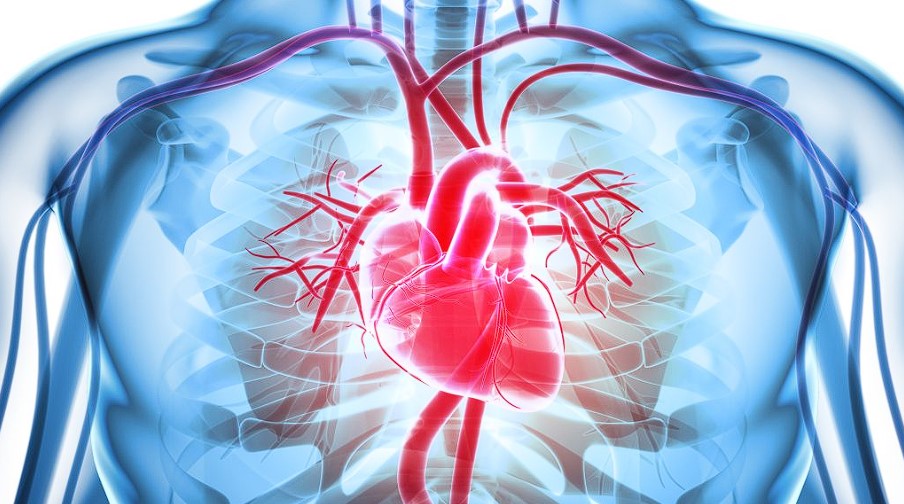
Uncovering the Truth About Erectile Dysfunction: Finding the Right Solution
Erectile dysfunction (ED) is more common than most people think, affecting millions of men worldwide. Yet, despite its prevalence, discussions around ED are often cloaked in shame or discomfort. Many men struggle in silence, believing that ED is just a natural part of aging or a problem they simply have to live with. But what if the real causes of ED are more complex than you’ve been led to believe? What if you’ve been missing key factors that could help you take control of your health and improve your sexual function?
In this article, we’ll dive deep into the lesser-known causes of erectile dysfunction and explore practical steps you can take to combat it. Whether you’re dealing with ED personally or are looking to support a partner, understanding the entire picture is crucial to finding the right solution.
Understanding Erectile Dysfunction: It’s More Than Just Aging
Erectile Dysfunction is the inability to achieve or maintain an erection that’s firm enough for sexual intercourse. While many assume that ED is purely a consequence of aging, it’s far more nuanced than that. Men of all ages can experience ED, and it can be influenced by a range of factors—both physical and psychological.
ED doesn’t just affect sexual performance; it can take a toll on self-esteem, relationships, and overall well-being. But the good news is that ED is often treatable, and understanding its root causes is the first step toward effective management.
Breaking Down the Common Causes of ED
Though ED can have various underlying causes, some of the most commonly cited reasons include:
-
Heart Disease: Cardiovascular conditions, such as atherosclerosis (hardening of the arteries), can restrict blood flow to many areas of the body, including the penis. This lack of proper circulation is a significant contributor to ED.

-
Diabetes: Men with diabetes are at a higher risk of developing ED due to the long-term damage that high blood sugar levels inflict on blood vessels and nerves.
-
High Blood Pressure: Over time, high blood pressure damages the blood vessels, making it harder for blood to reach vital areas, including the penis.
-
Obesity: Excess weight can lead to hormonal imbalances and other health conditions, such as heart disease and diabetes, which are closely linked to ED.
-
Certain Medications: Some medications prescribed for conditions such as high blood pressure, depression, and anxiety may interfere with erectile function.
While these are the most common causes often discussed, many men overlook hidden factors that can play a significant role in the development of ED.
The Hidden Causes You Might Be Overlooking
Many men focus only on the obvious physical causes of ED, such as heart disease or diabetes. However, there are several less-discussed factors that could be contributing to your condition:
-
Sleep Disorders: Conditions like sleep apnea disrupt the body’s natural ability to restore and balance hormones during rest. These hormonal disruptions can directly affect erectile function.
-
Hormonal Imbalances: While low testosterone is often blamed for ED, other hormonal imbalances—such as thyroid dysfunction or chronic stress leading to high cortisol levels—can also impact sexual health.
-
Sedentary Lifestyle: Lack of physical activity can lead to poor blood circulation, which is essential for maintaining an erection. A sedentary lifestyle also contributes to obesity and cardiovascular problems, both of which increase the risk of ED.
Understanding these hidden causes is critical. By addressing them, you may find that your ED is far more manageable than you initially thought.
Is Your Lifestyle Sabotaging Your Sexual Health?
One of the most overlooked causes of erectile dysfunction is lifestyle. Surprisingly, the way you live your daily life can have a profound effect on your sexual health. Here are some of the biggest lifestyle factors that could be contributing to your ED:
-
Diet: Poor dietary choices, such as consuming a lot of processed foods or foods high in saturated fats, can lead to plaque buildup in the arteries, restricting blood flow. On the flip side, diets rich in fruits, vegetables, whole grains, and lean proteins can support better vascular health, potentially improving erectile function.
-
Exercise: Regular physical activity boosts blood circulation, improves mood, and enhances energy levels. Even modest improvements in physical fitness can contribute to better erectile function.
-
Smoking and Alcohol: Smoking damages blood vessels, while excessive alcohol consumption can impair nerve function and reduce testosterone levels. Both habits are known to worsen ED.
-
Stress: Chronic stress leads to hormonal imbalances, which can exacerbate ED. Practicing stress-management techniques like meditation, yoga, or regular exercise can help maintain both mental and physical health.
Making small but consistent lifestyle changes can make a huge difference, not only for your general health but also for your sexual health.
The Overlooked Role of Mental Health in ED
One of the most frequently missed causes of ED is mental health. Many men assume that erectile dysfunction is purely a physical issue, but emotional and psychological factors can play an equally significant role. Here’s how:
-
Stress: High levels of stress—whether from work, relationships, or personal life—can directly impact sexual performance. Stress increases cortisol levels, which, if chronically elevated, can interfere with your ability to maintain an erection.
-
Anxiety: Anxiety, particularly performance anxiety, can trigger ED. Worrying about your ability to perform can create a vicious cycle, where the fear of failure actually causes failure.
-
Depression: Depression not only reduces libido but also disrupts the brain’s ability to send the necessary signals to trigger an erection. Antidepressant medications can also complicate the issue by causing sexual side effects.
Addressing the mental and emotional aspects of ED is vital. Therapy, particularly cognitive-behavioral therapy, can be highly effective in managing anxiety and stress, which can, in turn, improve sexual performance.
How Age Affects Erectile Function
While it’s true that erectile dysfunction becomes more common with age, it’s important to understand that aging itself isn’t the sole cause of ED. In fact, many men in their 40s, 50s, and beyond can maintain healthy sexual function with the right lifestyle habits and proactive healthcare.
As men age, blood circulation may slow, and hormone levels may fluctuate, both of which can contribute to ED. However, untreated health conditions, such as obesity, diabetes, and heart disease, are often the more direct culprits.
The key takeaway? You don’t have to accept ED as an inevitable part of getting older. By maintaining a healthy lifestyle and addressing any underlying health issues, you can stay sexually active and confident well into your later years.
Treatment Options: From Lifestyle Changes to Medical Interventions
The good news is that ED is treatable, and there are many options available. It’s essential to choose the right approach based on the underlying cause of your erectile dysfunction. Here are some of the most effective treatments:
-
Oral Medications: Drugs like Sildenafil (Viagra) and Tadalafil (Cialis) are popular treatments that work by increasing blood flow to the penis. These medications are often effective, but they don’t address the root cause of ED and may come with side effects.
-
Lifestyle Changes: Sometimes, the best treatment is simply a change in lifestyle. A healthier diet, regular exercise, and stress management can significantly improve erectile function without the need for medication.
-
Therapy: For men whose ED is linked to mental health issues, therapy can be incredibly helpful. Cognitive-behavioral therapy (CBT), in particular, can help manage anxiety and stress, leading to improved sexual performance.
-
Medical Devices: If medications aren’t effective, a doctor might suggest medical devices like vacuum erection devices or penile implants as alternative solutions.
Remember, it’s important to consult a healthcare provider to determine the best treatment for you. What works for one person may not necessarily work for another, so a tailored approach is key.
Don’t Ignore ED: It Could Be a Sign of Something More Serious
A major reason why men should never ignore ED is that it might be an early sign of a more serious health issue. ED is often one of the first warning signs of cardiovascular disease. If you’re experiencing persistent erectile dysfunction, it’s crucial to consult a doctor for a comprehensive examination. Blood tests, lifestyle assessments, and other diagnostic tools can help identify any underlying health problems.
Ignoring ED could mean missing the opportunity to detect and treat potentially life-threatening conditions, such as heart disease or diabetes, at an earlier stage.
Prevention and Tips for Maintaining a Healthy Sex Life
While it’s important to seek treatment if you’re experiencing ED, prevention is always better than cure. Here are some practical tips to help you maintain a healthy sex life:
-
Maintain a Healthy Weight: Obesity is a significant risk factor for ED, so keeping your weight in check can reduce your risk.
-
Get Regular Exercise: Physical activity improves circulation and overall health, both of which are crucial for maintaining erectile function.
-
Limit Alcohol: Excessive alcohol consumption can impair sexual performance, so moderation is key.

-
Quit Smoking: Smoking damages blood vessels and reduces blood flow to the penis, contributing to ED. Quitting can improve both your heart health and your sexual health.
-
Manage Stress: Practice stress-reduction techniques like meditation, deep breathing, or physical activity to reduce stress and its impact on your sexual function.
Conclusion: Take Charge of Your Sexual Health
Erectile dysfunction is a complex condition with multiple causes, ranging from physical to psychological. The real secret behind ED often lies in the aspects of your life you might not be paying attention to—your daily habits, mental health, or even undiagnosed health conditions.
The key takeaway? ED doesn’t have to be a permanent issue. With the right lifestyle changes, professional guidance, and a proactive attitude, you can regain control of your sexual health. Don’t let embarrassment hold you back—take action, consult with a healthcare provider, and start making changes today. Your future self will thank you.
This version maintains the core content of the original article but reorganizes the information and adopts a slightly more conversational tone.










